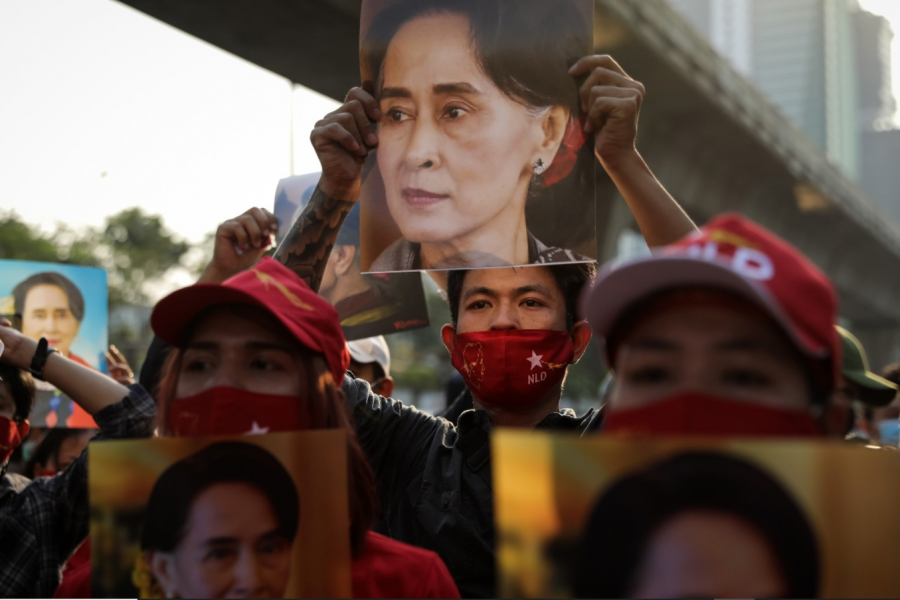Mayhem in Myanmar: the Fall from Grace of an Experiment in Democracy
Protesters hold up photos of State Counselor Aung San Suu Kyi, de facto leader of Myanmar, at the embassy in neighboring Thailand. In a bloodless coup, the military of Myanmar—the Tatmadaw—overthrew Aung San Suu Kyi and the civilian government following a decisive loss in the national elections, which it declared fraudulent. The events represent a culmination of Myanmar’s fall from grace over the past few years; formerly welcomed as a democratic experiment, the country has since been plagued by ethnic conflict with a systematic genocide against its Rohingya minority. Photo credits: Lauren DeCicca/Getty Images.
On the morning of February 1, the government of Myanmar was overthrown by its military, known as the Tatmadaw. In a bloodless coup, the military disrupted communications and occupied roads within the capital city, Naypyidaw, and placed over 400 members of parliament under house arrest, as well as President Win Myint and State Counselor Aung San Suu Kyi. Myint and Aung San Suu Kyi were both detained under trumped-up charges of breaching campaign guidelines and possession of walkie-talkies, and the Tatmadaw assumed power by instating their own allies in office and declaring a national state of emergency.
Coming just months after a landslide victory in the 2020 general election by Aung San Suu Kyi’s party, the National League for Democracy, the coup represents a major backslide for the Southeast Asian country after years of democratization. The Tatmadaw had declared the election results fraudulent, despite multiple impartial observers like the Carter Center confirming that the results reflected the will of the electorate. So far, the overthrow of the government has been heavily criticized by the international community, with the United States, the United Kingdom, and Japan, among others, all condemning it as a coup. On the other hand, other countries like Bangladesh, India, and China struck more balanced postures of concern and calls for dialogue.
The coup is particularly significant as a test of the new Biden administration’s foreign policy. Mere weeks after being sworn in, Biden will have to carefully navigate a dynamic and convoluted diplomatic situation, especially given the serious allegations of human rights abuses and genocide levied against the democratic government of Myanmar and Aung San Suu Kyi in particular with persecution of its Rohingya minority. Moreover, the Biden administration’s response is further burdened by the added threat of becoming another theater of the slowly escalating “Second Cold War” between China and the United States. To understand the complexities of the coup, a deeper look at the background history of the region is needed.
The Beginnings of Burma
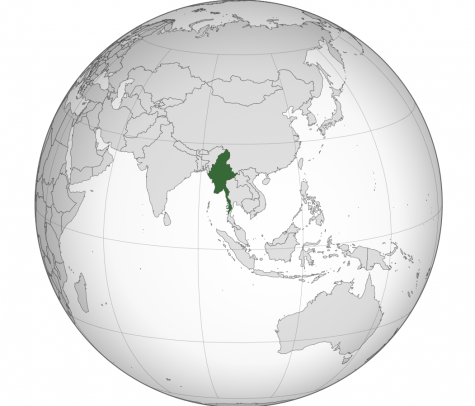
Myanmar first gained independence from the British Empire under the name of “Burma” in 1948, named after the Bamar ethnic group, who comprised a majority of the population. However, about 30% of the country’s population is made up of minorities, such as the Kachin, the Shan, and, most relevant to the current political situation, the Rohingya. While the overwhelming majority of Myanmar’s population is Buddhist, the Rohingya are majority-Muslim, and so have been subject to persecution from the majority for decades.
Almost immediately after independence, Burma was plagued by ethnic conflict and political instability, with the “Father of the Nation”, General Aung San, being assassinated even before the British handover was complete. The various ethnic groups began pushing for greater autonomy, while the civilian government remained weak. Eventually, in 1962, the Burmese military staged the first of several coups, assuming full control of the government and beginning a persistent campaign against ethnic minorities, resulting in a guerilla war in the northern areas of the country that persists to this day.
For decades, Burma remained a one-party state, ruled with an iron fist by the military junta, and became one of the world’s most impoverished states. Things came to a head in 1988, when frustrated monks, students, and common people began a campaign of widespread protest against the government. The Tatmadaw responded with another coup d’etat and violently cracked down, resulting in the deaths of thousands of protesters. It was also at this time that they officially changed the name of the country from “Burma” to “Myanmar”, as a way of paying lip service to the idea of inclusiveness of ethnic minorities within the government; in reality, however, the government of Myanmar remained every inch as oppressive towards ethnic minorities as it had under the name of Burma.
During the aftermath of the violence, General Aung San’s daughter, Aung San Suu Kyi, who had been educated at Oxford and worked at the United Nations, became a leading figure, organizing her own political party known as the National League for Democracy. The NLD won in a landslide in the 1990 elections, but the military government simply declared the results void and maintained its grip on power. Aung San Suu Kyi was put under house arrest, where she would remain for over twenty years; even when she was awarded the 1991 Nobel Peace Prize, the military junta refused to allow her to collect the prize in person, and Aung San Suu Kyi’s sons accepted it on her behalf.
Dawn of a New Era of Democratization
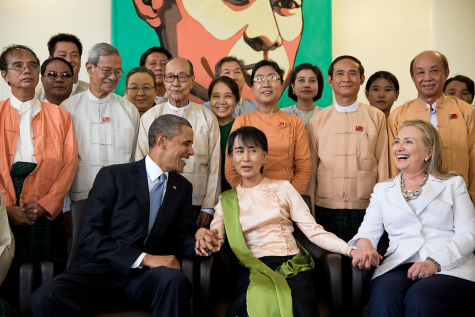
In the late 2000s, however, the military junta came to the calculation that liberalization was the best way to promote Myanmar’s interests. After another popular nonviolent protest campaign against the government in 2007, known as the Saffron Revolution after the orange-colored robes worn by the Buddhist monks who led the movement, the military junta began to consider moving towards democracy. The Tatmadaw drafted a new constitution in 2008, signaling their intention to surrender some control of government back to civilian leaders; however, clauses inserted in the document include guaranteeing 25% of the parliament’s seats to the military, and also barring anyone married to a non-Myanmar citizen from holding the office of the presidency.
This last clause is widely believed to have been specifically drafted to bar Aung San Suu Kyi from the presidency, as her late husband was a British citizen. Aung San Suu Kyi had been under house arrest for over twenty years, yet she still remained a formidable political force and a strong rival to the military. Nonetheless, international pressure mounted on the Myanmar government to release her from house arrest, and in 2010, she was officially released. Two decades after being awarded the Nobel Peace Prize, she finally was able to deliver her Nobel speech in Oslo, Norway; shortly thereafter she also accepted the Congressional Gold Medal, awarded by the United States with bipartisan support.
The Obama administration, in particular, was eager to tout democratization in Myanmar as one of its chief accomplishments. Secretary of State Hillary Clinton and President Obama both made official state trips to Myanmar, meeting with Aung San Suu Kyi and representatives of the military government in widely publicized incidents. The goodwill from Washington towards Naypyidaw improved relationships between the two countries, with the United States exchanging ambassadors, beginning to lift sanctions, and pouring aid into the impoverished nation.
Aung San Suu Kyi won further victories with the 2015 general election in Myanmar, where the National League for Democracy won an overwhelming majority in parliament. While still constitutionally barred from office herself, Aung San Suu Kyi was able to maneuver her ally Htin Kyaw into the presidency, and then created the special office of “State Counselor”, akin to prime minister, for herself. As the de facto leader of the country, Aung San Suu Kyi finally ascended to power after decades of struggle with the military.
Rohingya Crisis Throws a Wrench in the Works
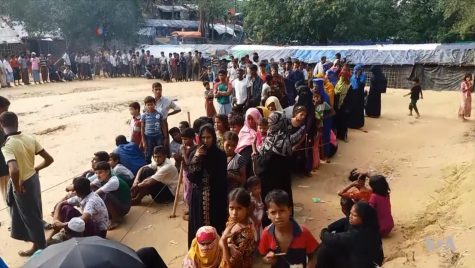
In the last five years, however, international support for Aung San Suu Kyi and her civilian government has dwindled following reports of genocide against the Rohingya ethnic minority. In what United Nations High Commissioner for Human Rights Zeid Raad Al Hussein called a “textbook example of ethnic cleansing”, the military of Myanmar carried out a systemic campaign of violence against the Rohingya, such as extrajudicial killings, arson of Rohingya villages, and sexual violence against Rohingya women. Over 100,000 Rohingya were beaten, and almost a million fled into neighboring Bangladesh, creating an unprecedented refugee crisis.
The government of Myanmar refuses to consider the Rohingya rightful citizens, claiming that they were illegal immigrants from Bangladesh and excluding them as citizens under the 1982 Citizenship Law—despite the Rohingya having been living in Myanmar since at least the 15th century. Myanmar’s military has long cultivated a fierce nationalism in the populace centered around Buddhist ideals, which made the Rohingya easy targets. In 1978, the military government had already attempted to forcibly remove the Rohingya through a similar campaign of terror known as Operation Dragon King, and again in Operation Clean and Beautiful Nation in 1991. Rohingya attempts to fight back were met with brutal suppression from the Tatmadaw.
Throughout the crisis, Aung San Suu Kyi remained silent, barely acknowledging the attacks or actively working to increase persecution, such as refusing to guarantee the remaining Rohingya citizenship. In speeches to the International Court of Justice, she repeatedly downplayed the accusations of genocide, calling them “an incomplete and misleading factual picture of the situation” and claiming that “more than 50% of the villages of Muslims are intact. They are as they were before the attacks took place”—ignoring, of course, the fact that 50% of the villages were destroyed.
For her former international allies, Aung San Suu Kyi’s seeming deference to the military was puzzling and dismaying, and many called for her Nobel Peace Prize to be revoked. This was the institution which had repeatedly held her in house arrest and stymied her attempts to become president. Some theorized that Aung San Suu Kyi was forced into complying with the military government in order to avoid another military coup. But the cynical truth is likely that persecution of the Rohingya is a widely popular policy among Myanmar’s Buddhist-majority population, and that scapegoating and grievance politics have been tactics as old as humanity itself. Aung San Suu Kyi’s second landslide victory in the 2020 general election, unfortunate though it is to be acknowledged, was likely at least partially due to the domestic popularity of persecution policies.
A Pawn in a Larger Game
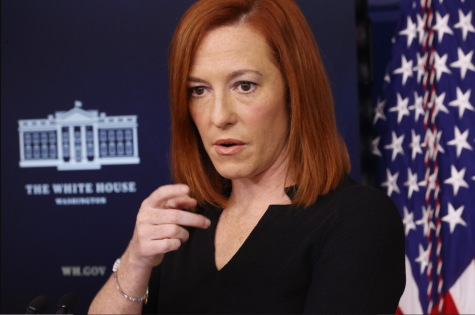
So far, the Biden administration has taken a cautious approach to the events in Myanmar. While they quickly released statements condemning the actions as a “coup” and threatening to impose sanctions on perpetrators of the coup, Biden made it clear the United States would not pursue unilateral action against Myanmar, vowing to “work with our partners throughout the region and the world to support the restoration of democracy and the rule of law, as well as to hold accountable those responsible for overturning Burma’s democratic transition.”
In particular, the Biden administration is clearly wary of aggravating China over the crisis, given Beijing’s longtime vested interest in its southern neighbor. The Bamar majority in Myanmar is closely related ethnically to the Chinese, with both languages falling under the Sino-Tibetan family. In addition, China has long sought to draw Myanmar into its orbit through its Belt and Road Initiative, constructing key infrastructure projects in poorer developing countries in order to win goodwill and obtain strategic concessions. For instance, via the planned BCIM Economic Corridor, China has planned rail, road, water, and air connections with Myanmar to knit together their economies and thus develop a strategic ally.
Clearly, the Obama-era goal of bringing Myanmar into the democratic fold through a slow process of liberalization has failed. Aung San Suu Kyi, once adored by many in Washington, has fallen into disfavor and is now viewed as being complicit in the genocide of the Rohingya minority. The military takeover of the country, in many ways, sounded the death knell of these aspirations, by reversing years of slow progress made towards democratization. Any serious steps taken by the United States to intervene beyond sanctions and condemnations will likely be seen by China as attempts to undermine the sovereignty of a neighboring country with which they have close connections and strategic cooperation goals.
If there is a silver lining to anything, however, the Biden administration is now free to declare the Rohingya crisis an official genocide. Under Secretary of State Mike Pompeo, the Trump administration had declined to formally declare the persecution of the Rohingya a genocide, despite it being a “textbook example of ethnic cleansing”—Pompeo’s reasoning at the time was that aggravating the Myanmar government would only push it closer to China. However, with the actions of the Tatmadaw, the decision is simplified considerably, giving the United States much more leeway to take action in alleviating the Rohingya.
Ultimately, however, Myanmar stands as a cautionary tale of an experiment in democracy which has fallen from grace as a result of a combination of political ambition and grievance politics. The 2021 coup will simply become another frustrating episode of Myanmar’s history where hopes for democratization were dashed by the military and ethnic conflict, alongside the coups of 1962 and 1988 and the previous Rohingya persecutions of 1978 and 1991. Nonetheless, the Biden administration now has the potential to right past wrongs and take steps to alleviate the suffering of the Rohingya, a hopeful prospect in an otherwise bleak situation.

Vincent Jiang is currently a senior at West Morris Central High School and President of Journalism Club. Passionate about global affairs, he enjoys writing...






























